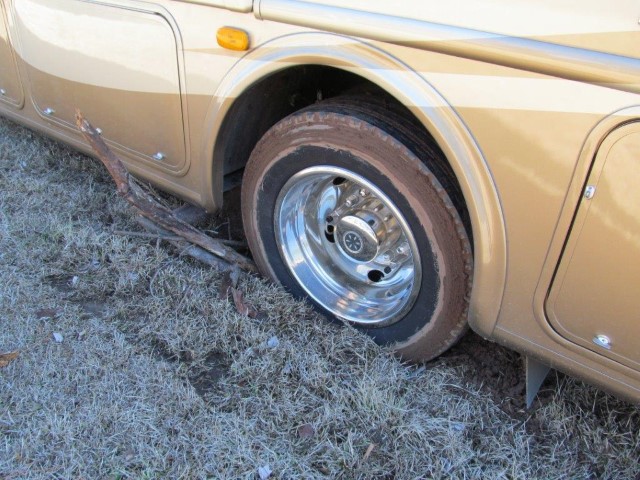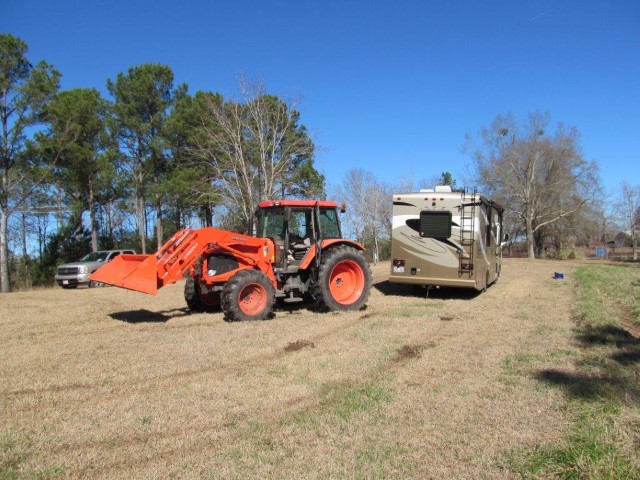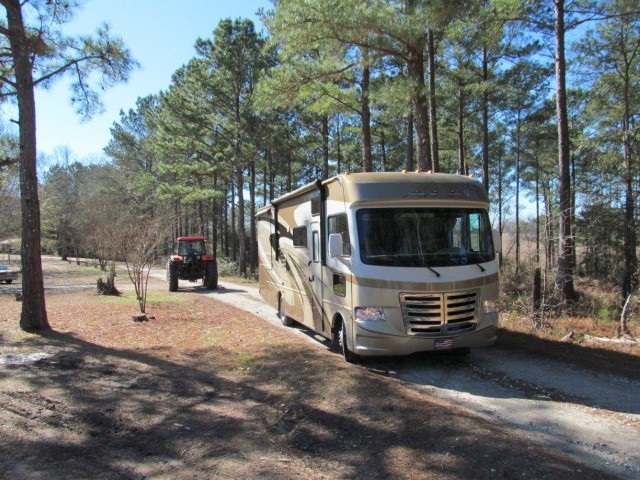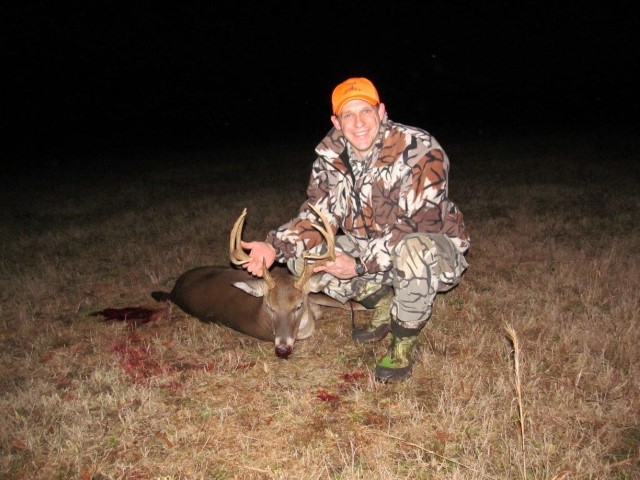Just like last year, Cliff and I found ourselves at the Conecuh Springs Christian School charity hunt. This year, though, I had the opportunity to learn an important set of essential motorhome lessons:
Lesson #1: Never drive a motorhome with 10,000 lbs of weight on the rear axle onto ground softened by record rainfall. Why? Because the motorhome sinks in the mud.

(Yes, those are sticks shoved in under the tire in a vain attempt to propel the motorhome out of its self-inflicted immobility. That didn’t work either.)
Lesson #2: Once stuck in the mud, never spin the rear wheels. All that does is sink the motorhome even deeper, with the added benefit of spraying mud all over the undercarriage.
Lesson #3: Do not try to use a 4-wheel drive 1/2-ton pickup to try to pull the motorhome out: The truck can’t possibly pull a trench-bound motorhome on soft soil, so the truck gets stuck in the mud, digs itself into its own set of four trenches, and now you have two problems.
Lesson #4: If you were using a nylon tow strap to connect the now-stuck pickup to the still-stuck motorhome, be prepared for the two vehicles to have settled away from each other in opposite directions, which means you’ll have to cut the strap. Now you have three problems: two stuck vehicles and no tow strap to pull either one out.
Lesson #5: As the host of our hunt said, “The good thing about Bullock County is that you never have to wait too long for a passing tractor.” True, but if you flag down a tractor and try to pull the motorhome out backwards by the tow hitch, make sure the chain is strong enough. Otherwise, it snaps like rubber band and you’re still stuck.

(Behind the still-stuck motorhome, which just snapped the tow chain attached to the tractor, you can see the four trenches from the now-liberated pickup.)
Lesson #6: After finding a bigger chain, being able to pull the motorhome backwards does no good if the place it’s towed to is just as soft. All that produces is more trenches.
Lesson #7: If escaping the soft ground means using the tractor to pull the motorhome backwards onto the nearest dirt road, be prepared to trim the trees in the way.

Anyway, after an hour or so of adding this to the list of motorhoming lessons learned, we finally found a dry-enough campsite, set up ACE for the stay, and headed out to the hunt. The result? Four deer, including one really nice buck taken by Cliff on the first day. (We couldn’t find one of the deer at night, and decided to find it the next morning. Unfortunately, though, the coyotes found it before we did–oh well, the “circle of life” and all that.)

All things considered, the trip was great fun, memorable hunting, wonderful people, and the best home-made cooking one can hope to find.
Not only is the hunting as good as it gets, but the cause is worthy. I love the way CSCS phrases its mission: “Conecuh Springs Christian School is dedicated to the philosophy that a Christian Education is the only truly valid education. True education must be administered in a spiritual atmosphere and must recognize God as the supreme source of all knowledge and wisdom.”
Overall totals for the trip:
Miles: 170
Campsite fees: $105 (three nights)
Fuel cost: $59.13 (9.08 mpg)
